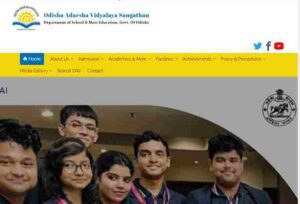
Preparing students for the future of work requires a combination of academic knowledge, practical skills, and adaptable mindsets. Here are some key strategies to help students thrive in the evolving workplace, understand through these points
1. Emphasize Critical Thinking and Problem-Solving
Encourage students to think critically, analyze information, and solve complex problems. Provide opportunities for hands-on learning and real-world application of knowledge.
Also Read: What Will Schools Look Like In The Future?
2. Foster Creativity and Innovation
Create an environment that encourages creativity, experimentation, and innovation. Encourage students to explore new ideas, take risks, and think outside the box.
3. Develop Communication and Collaboration Skills
Teach students how to effectively communicate their ideas, collaborate with others, and work in diverse teams. Emphasize both verbal and written communication skills, as well as the ability to collaborate using digital tools.
4. Cultivate Digital Literacy
Equip students with the digital skills needed to navigate an increasingly technology-driven world. Teach them how to use digital tools and platforms effectively, critically evaluate online information, and protect their privacy and security online.
5. Promote Adaptability and Resilience
Help students develop adaptability and resilience to navigate change and overcome setbacks. Encourage a growth mindset that embraces challenges and sees failures as opportunities for learning and growth.
6. Provide Career Exploration Opportunities
Offer students opportunities to explore different careers, industries, and pathways. Provide access to internships, job shadowing experiences, mentorship programs, and career counseling resources.
Also Read: Top 10 High Demand Courses In USA
7. Teach Entrepreneurship and Financial Literacy
Equip students with the skills and knowledge needed to manage their finances, understand economic principles, and explore entrepreneurship opportunities. Teach them how to create and manage budgets, invest wisely, and assess risk.
8. Emphasize Lifelong Learning
Instill a love of learning and a commitment to lifelong skill development in students. Encourage them to pursue interests outside of the classroom, engage in self-directed learning, and seek out opportunities for continuous growth and development.
Also Read: Top MBA Specializations for Aspiring Government Professionals
By incorporating these strategies into their educational approach, schools can help prepare students to succeed in the future of work, where adaptability, creativity, critical thinking, and collaboration are essential skills for success.






